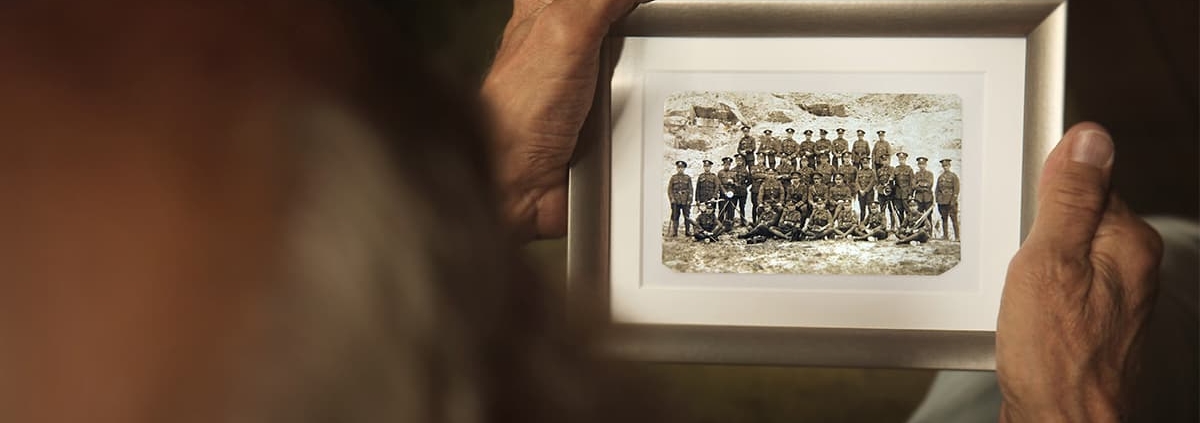Care Stories: Caring about the Present …and the Past
Finding a pair of old army boots in a second-hand shop might not seem like a huge deal – but for a care worker who had been trying to boost the spirits of her elderly client, Bill – it was a game-changer.
As Bill’s dementia has progressed, Margaret had noticed that he had become increasingly depressed as his short-term memory was failing. She knew from photographs that he had served in the army, and when he was chatty, spoke fondly of it as a time when he felt he had purpose and a sense of respect.
On seeing the dusty black leather boots that Margaret had brought him, Bill started rummaging around in his kitchen drawer until he found a shoe brush and an old tin of polish. It was cracked and dried, but enough to make a start with.
That tiny gesture gave Bill a sense of pride as he buffed the boots ‘old school’ until they gleamed, and as he did so, talked about his time as a soldier, and later an architect, a husband and father (and, it turns out, a particularly talented Salsa dancer!)
Each time she came in after that, Margaret had plenty of chat to lift his spirits. The thing is, the boots were not the magic formula – her genuine interest in his wellbeing and compassionate care, were.
Care workers have to constantly be open to these opportunities to enrich the lives of those they support – and it’s not always about the ‘here and now’ or the tasks that they have on their list that day.
Sometimes, it’s about the ‘way back when’, or asking for opinions on things that matter, to remind our clients that their take on life is as important as it ever was.
Care Staff as Community ‘Connectors’
In the UK, we are not the best at building elderly inclusion into our communities – which is odd, when one remembers that our communities were built by those same people who now feel excluded. Our elderly are retired book-keepers, skilled tradespeople, doctors, writers, machinists – you and I – just a few decades in the future, but often disconnected from society – those with dementia, even more so.
Care staff provide part of that vital connection, ensuring that elderly people can feel connected again, perhaps also assisting them to lend their expertise in their communities through volunteering, or simply by enabling them to socialise with others.
Good care can keep a body healthy, but compassionate care can replenish the soul; that requires a special kind of person. And whilst care work is not for everyone, those who go into – and stay in – the profession for the difference they make to other people’s lives, are precisely the kind of carers that we will hope to have when we are a few decades down the line.



